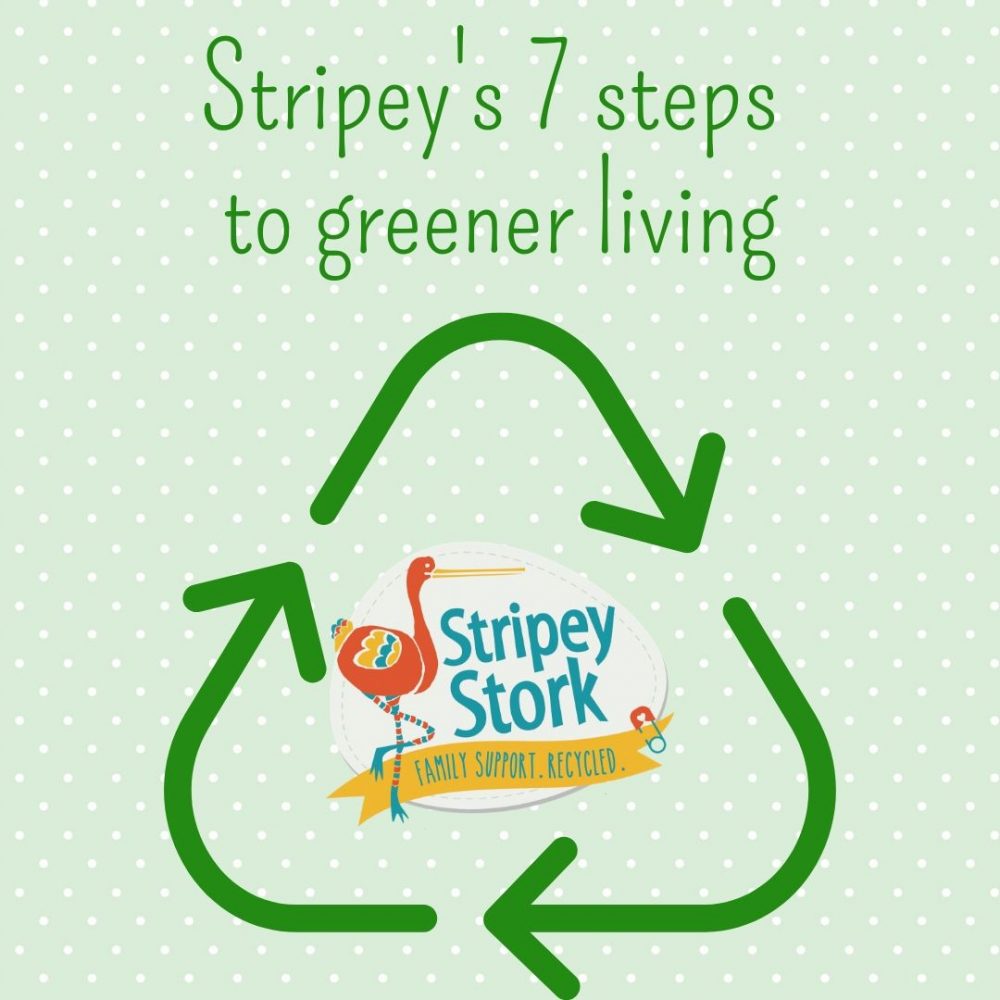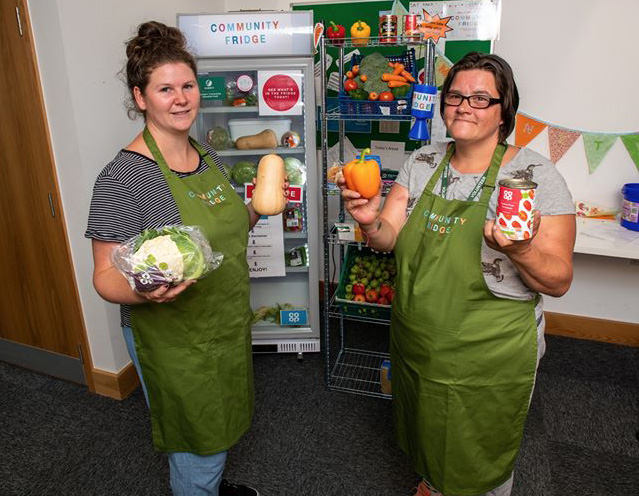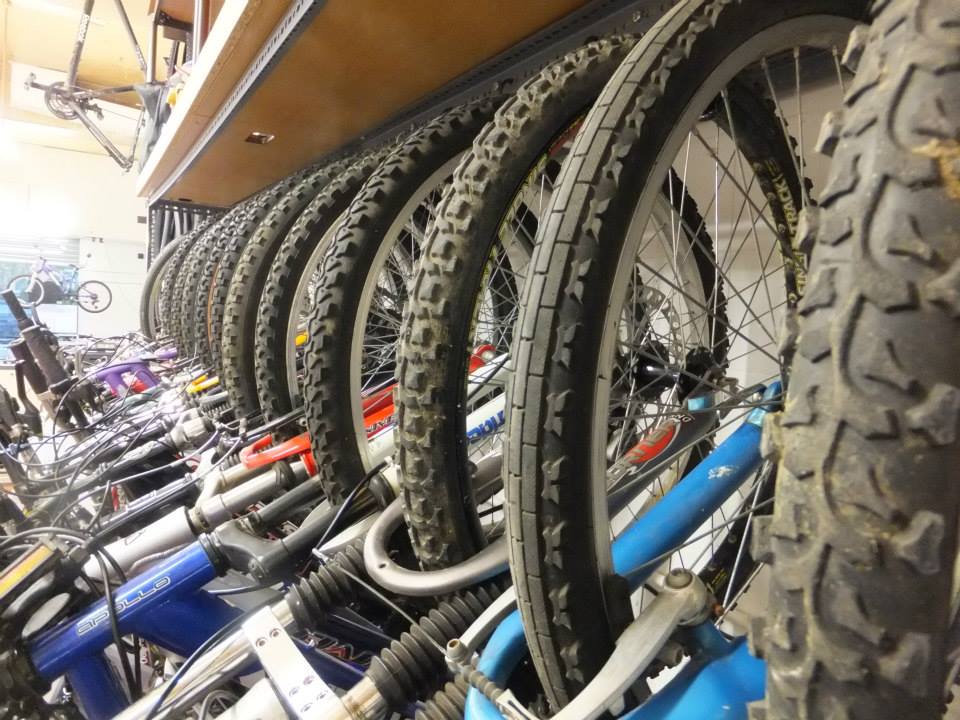Stripes4Stripey 2025 – A record breaking year
Our annual Stripes4Stripey campaign returned on the 19th June and once again our amazing supporters

Have you promised yourself that this year, as a family, you’ll take action to be kinder to the environment? If you feel you can and should be doing more, but are unsure where to start, then read on…
It doesn’t need to be an all or nothing situation – one small change today can collectively make a massive difference for tomorrow. You don’t have to become an eco-warrior, but can start by following Stripey’s seven, easy to implement, steps to getting started on your environmentally friendlier journey:
1. WASTE LESS FOOD. Top tip, it’s all in the planning. Plan your meals so you know what you need to buy, sounds simple but you’ll be amazed how many households don’t. Evidently there’ll be some waste, but it doesn’t need to go in the compost, or even worse the bin. Install and sign-up to Olio – the local food app. It connects neighbours with each other and local businesses, so surplus food (and other household items) can be easily shared. If technology isn’t your thing, then pop down to your local community fridge. Merstham and Dorking are the most local to Reigate, and are filled with near sell-by date perishables, where items are dropped-off/collected at allocated times.

2. DRIVE LESS. Think twice before grabbing your car keys. Transport is responsible for nearly 30% of Europe’s total CO2 emissions, of which 72% comes from road transportation. Walking is good for the soul, good for your health and harmless to the environment. If you’re lucky that you live close enough to work, leave that little bit earlier and start your day with a refreshing walk. Or, bike it! If you don’t have a bike, then consider making the investment and it will soon pay for itself. You can even buy a reconditioned second hand one from somewhere like Bikes Revived.

If it’s not possible to get to work on either two legs or two wheels, hop onboard public transport. But, if driving is your only option, suggest a car share at work, saving you petrol money as well as cutting down on fuel emissions.
3. PICK A ‘FREE’ DAY. Set aside one, or more, days where you forgo a certain thing. For example, every Sunday be car-free. Or, for two days of the week, go veggie or diary-free. Avoiding meat and diary is the single biggest way to reduce your environmental impact – it’s estimated that 28% of greenhouse gases are produced by eating meat and raising cattle. Plus, eating plant-based is healthier for your body too. The kids can get involved in planning what these ‘free days’ will be and give ideas of alternative suggestions.
4. GO GREEN ENERGY. Be like us and switch to a 100% renewable energy provider. Octopus Energy are very competitive, have excellent customer service and have a great referral system, whereby if you refer a friend you both get a £50 credit. Make the switch now by using this link.
And whilst we’re on the subject, swap out your old inefficient light bulbs for CFLs or LCDs. They might cost a little extra, but they last longer and use less power to operate, so you’ll make your money back in the longer term.
5. ECO-BOTTOMS. Do you know you can now buy bio-degradable nappies and wipes? Like these Eco by Naty nappies which we have on our Amazon wish list. They are mainly made of plant-based materials, as the main absorbent of the nappy is wood pulp, which is responsibly harvested from Scandinavian forests and carries a FSC certification. A pretty amazing advancement in the nappy market, wouldn’t you agree? With the average baby using 7,000 nappies in their lifetime, this seems a sensible place to start making a difference.
6. SAY NO TO PLASTIC. Don’t just stop at nappies! Do you know it takes 400 years for a plastic toothbrush to decompose? Since the first toothpaste was made in the 1930s, this means that every single plastic toothbrush ever made is still out there, sitting in landfill or floating in the sea. There is an affordable alternative – toothbrushes with bamboo handles only take six months to decompose. When you consider that the average person uses 300 toothbrushes in their lifetime, this is a very positive step to being more eco-friendly. Here’s a recommended bamboo handle toothbrush which we’ve found.
Have you considered soap/shampoo bars, where no container is necessary? Or refill/zero waste shops, such as New Leaf in Reigate (opening September 2020), Pedricks in Caterham and Fetch’em from the Cupboard in Fetcham and Ashtead. You’ll be amazed at the amount of household waste reduction.
7. RECYCLE RECYCLE RECYCLE! If you are already a Stripey Stork supporter then we are preaching to the converted when we talk about recycling the once-loved baby and children’s items which your family no longer needs. By re-distributing them in this way, we estimate that one third of these quality items are saved from landfill. See our Donate Items section to find out more about what and how to donate. See this UK map to find out your nearest baby bank.
If we are unable to accept your baby and children’s items, then we’ve put together a handy guide on alternative recycling and reusing options in the Surrey area.
Then there’s the recycling of materials by your local council. We have the most amazing Community Recycling Centres in Reigate and Banstead which are open nearly every day of the year and have recycling containers for so many different materials. Or they have weekly/fortnightly kerbside collections of glass, aluminium, plastic, paper and food. It’s worth familiarising yourself with your council’s recycling guidelines, see link for a full list of what can/can’t be recycled in each of Reigate & Banstead Borough Council bins.
On top of all else, keep thinking the 3 R’s – Reduce-Reuse-Recycle. It’s the best eco-rule to live by (in that order). Try to buy less, ask yourself do you really need it? If the answer is yes, then try to buy second hand or reusable products. And finally, recycle what you can.
You don’t need a complete lifestyle overhaul to make changes to your environmental impact. If everybody does their part, then the difference will be huge. We understand that people’s lives are busier than ever, but if you start working through this list you’ll hardly notice the change, but the environment will, and so will your children. Remember – instilling good habits for future generations.
Our annual Stripes4Stripey campaign returned on the 19th June and once again our amazing supporters
Have you heard the news? Mummy Pig is having a baby and it’s a girl!
At Stripey Stork we see the reality of poverty every day through the referrals we
The children had been increasingly missing school, refusing to go because they were worried they’d
Our focus is the Surrey region and bordering areas. If you are in a different region, see map of UK baby banks to find one near you.